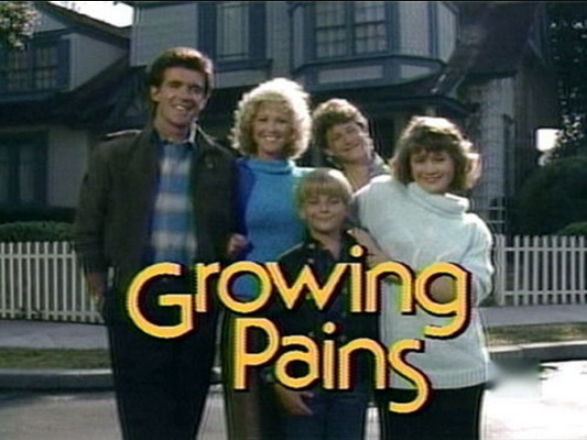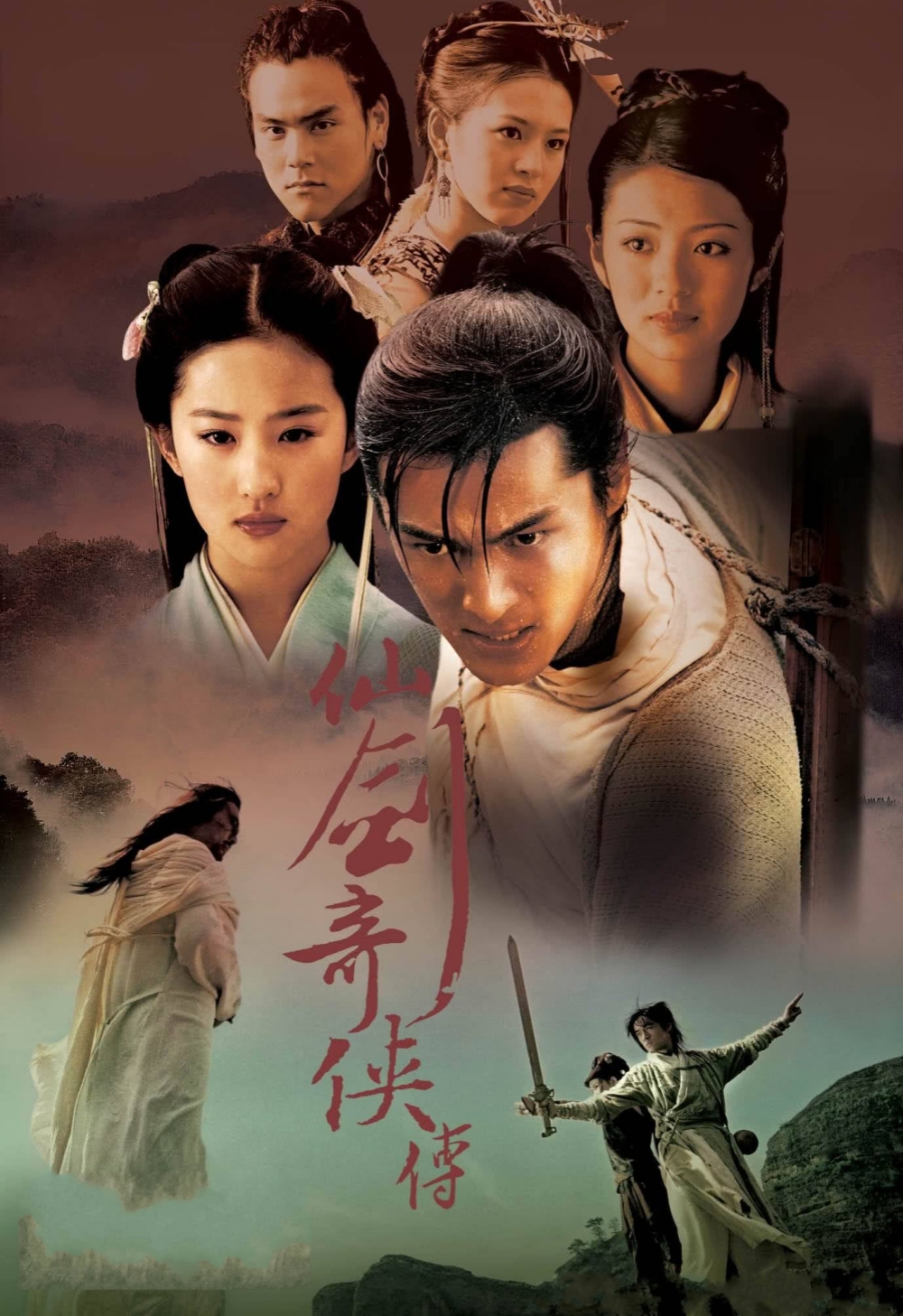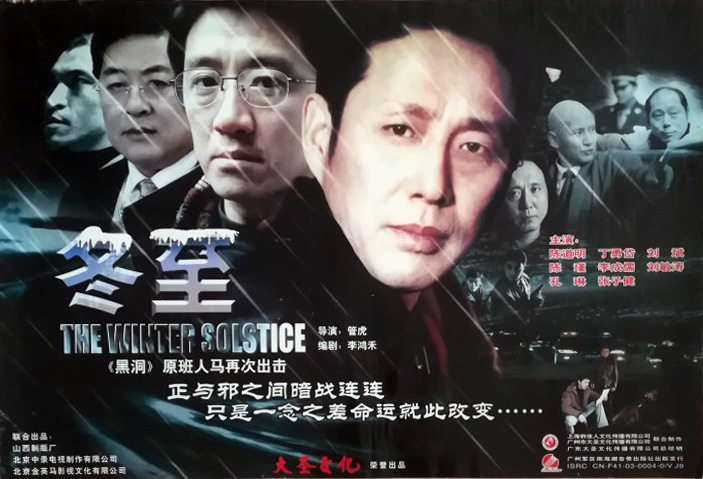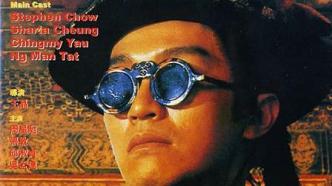
Editor's note: This is a nostalgic theater.
The movie "The Legend of the Condor Heroes" directed by Tsui Hark announced the main role candidates in May this year. Guo Jing is played by the top Xiao Zhan, and Huang Rong is played by the relatively unknown Zhuang Dafei. The subtitle of this film is "The Great Hero", which makes movie fans have some expectations.
In the past two years, the adaptation of Jin Yong's original works into martial arts movies has become popular again, but the effect has always been thunderous and rainy. The first and second episodes of "Yi Tian Shou Long Ji", which was released on the Internet platform at the beginning of last year, were directed by Wang Jing, and the casting was criticized a lot by everyone. The leading actors were either too old stars from Hong Kong, or mainland actresses who were praised by Wang Daoli as "net celebrity plastic surgery face". The rhythm of Jin Yong's adaptation films every year now makes people wonder whether Hong Kong directors and actors have found new gold-digging points and can continue to make money from the audience's pockets.
Thinking about it this way, the quality of "The Legend of the Condor Heroes" released next year is quite worrying. Even with the escort of the great director Tsui Hark.
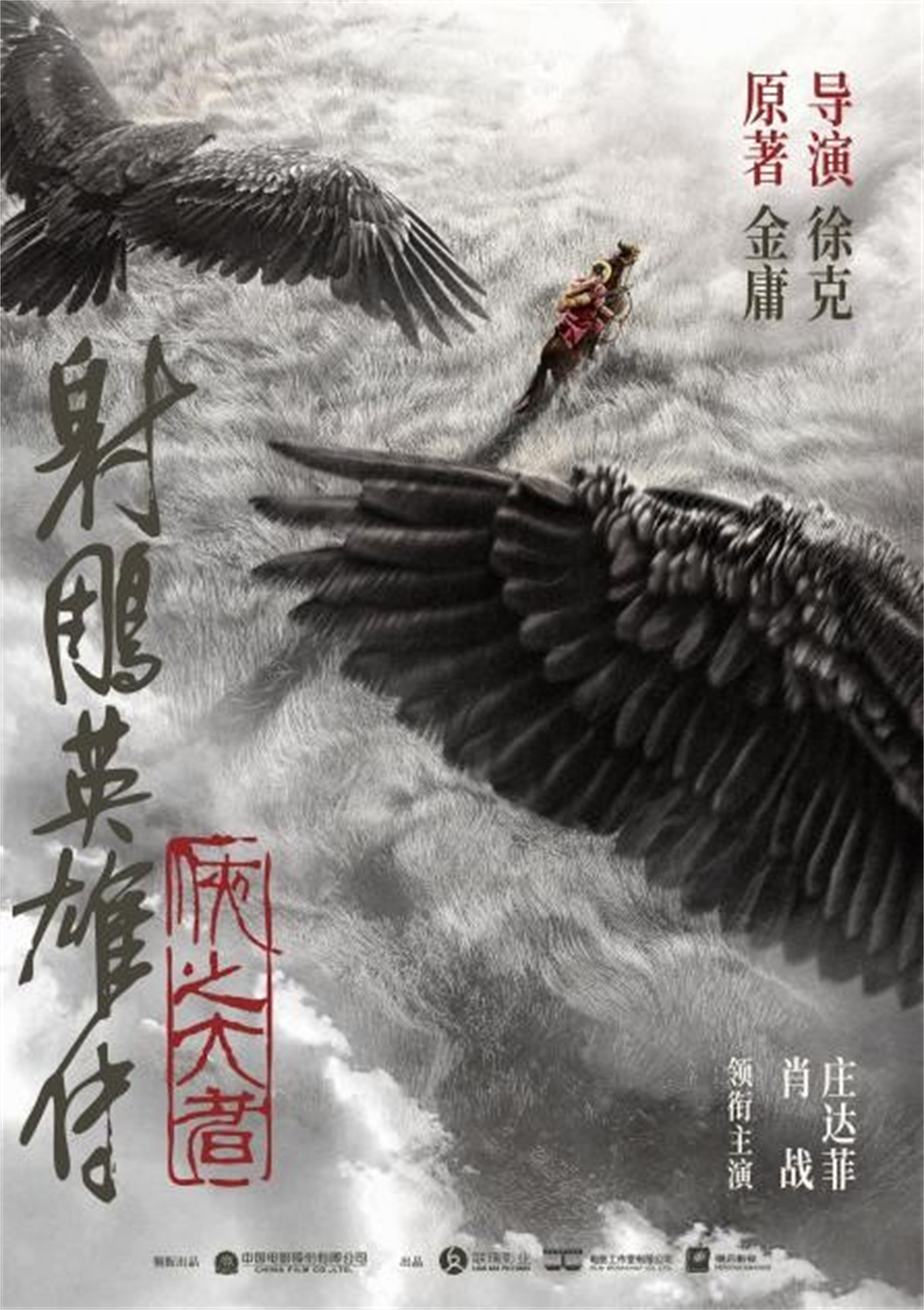
Scheduled to be released next year, the concept poster of Tsui Hark's version of "The Legend of the Condor Heroes".
Now the general environment of the movie market has changed, and kung fu movies are somewhat outdated.
In April, in order to promote the new film, Jackie Chan cried in front of the media, frankly saying that there is no market for martial arts stars now, and the cultivation of newcomers is even more impossible. This is no wonder, because he experienced the hottest period of Hong Kong martial arts films in the 1980s and 1990s, and later went to Hollywood to develop, making the whole world know Jacky Chen. But such a good day apparently disappeared slowly after two thousand years. When the big waves recede, no one can save them, they can only follow the trend.
The source of the trend at that time, from the large category of kung fu movies to "ancient martial arts movies", then it should be "Swordsman" produced in 1990, which was jointly directed by the master Hu Jinquan and the younger generation Tsui Hark. Although the cooperation process is not smooth, it can also be regarded as a relay of the era of a certain "martial arts film culture". In the next few years, with the release of "New Dragon Inn", the continuous success of Jet Li's "Once Upon a Time" and other works, and Wong Kar-wai's money-losing "Evil and West Poison" to join in the fun, the film market was surging, and famous, profit-seeking, and even artistic films were blooming.
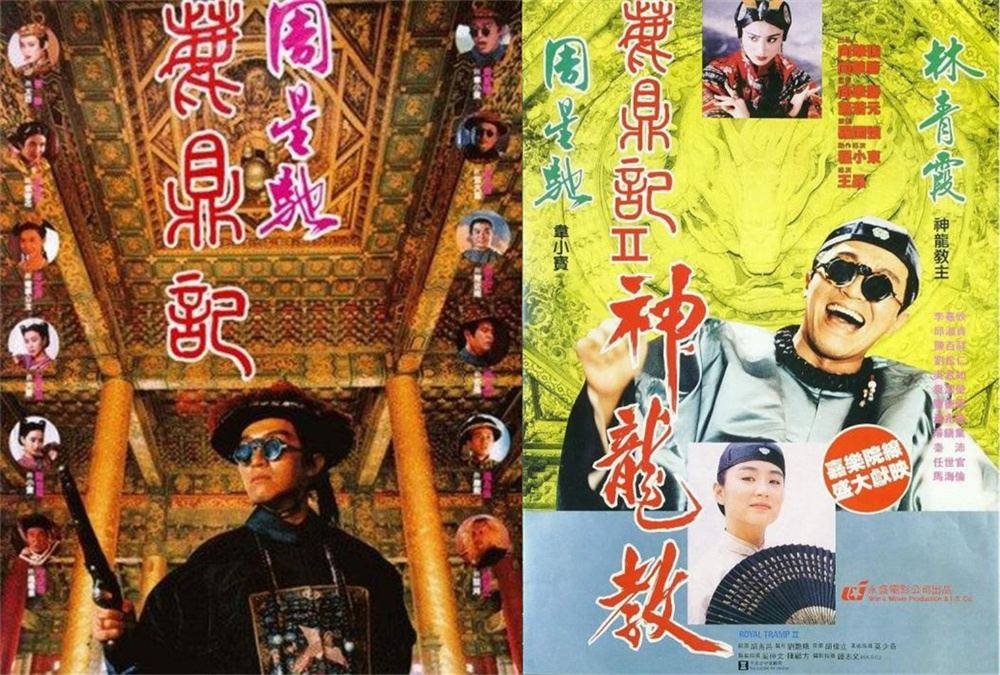
"The Deer and Ding Tale" and "The Deer and Ding Tale II" were released successively in July and September, obviously the two episodes were filmed at the same time.
In 1992, the two "The Deer and Ding Tale", written and directed by Wang Jing and starring Stephen Chow, can be regarded as quite successful masterpieces in this trend, ranking third and fifth at the box office in Hong Kong that year. Another achievement worth mentioning is the top 5 domestic blockbuster films in 1992, each of which starred Stephen Chow. People have to sigh that the comedy signature of Master Xing was so dazzling that day. And the gimmick of "nonsense" and "costume kung fu" is the safest guarantee of success in the market.
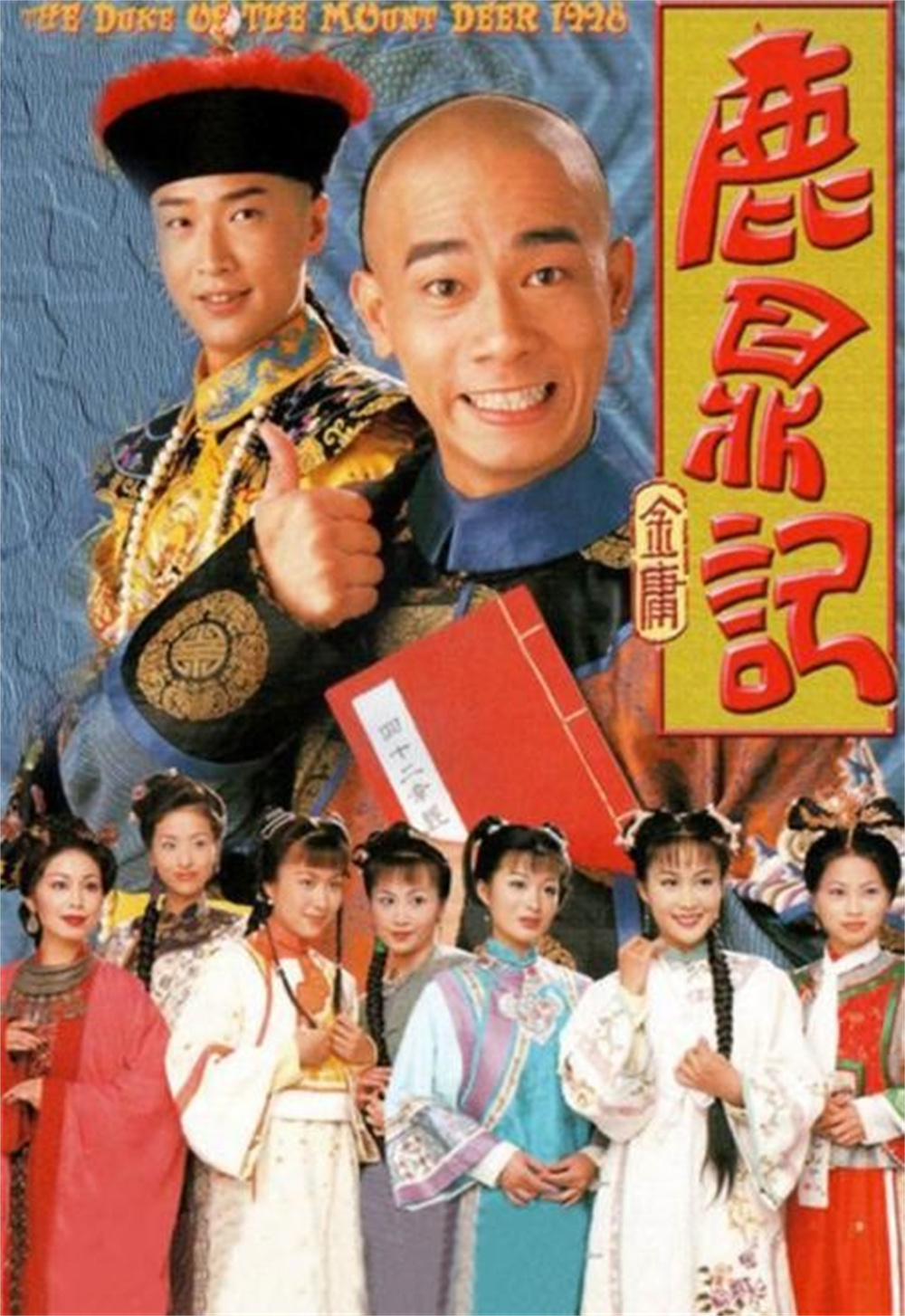
Apart from Wei Xiaobao played by Zhou Xingchi, the most famous one is the drama version of Wei Xiaobao played by Chen Xiaochun. The seven wives are also a major selling point of the plot.
"The Deer and Ding Tale", even in the world of Mr. Jin Yong's martial arts, is a rather special novel. This is the final work of his long writing career. The protagonist Wei Xiaobao is basically a gangster who doesn't know martial arts, but he can turn upside down in the court and the world of rivers and lakes. In the end, not only the high-ranking officials return home with rich clothes, but also get seven beautiful wives. Of course, Mr. Jin Yong's creative skills are far better than those of online novelists, and there are many in-depth descriptions of ancient culture, history and society, and human nature in his works.
In terms of Wei Xiaobao's character, he is somewhat similar to many protagonists in Zhou Xingchi's film career, and the protagonist's miraculous fortune history is also a reasonable exaggeration in the style of nonsensical comedy. So letting Zhou Xingchi play Wei Xiaobao and interpret "The Deer and Ding Tale" with nonsense is a natural fit.
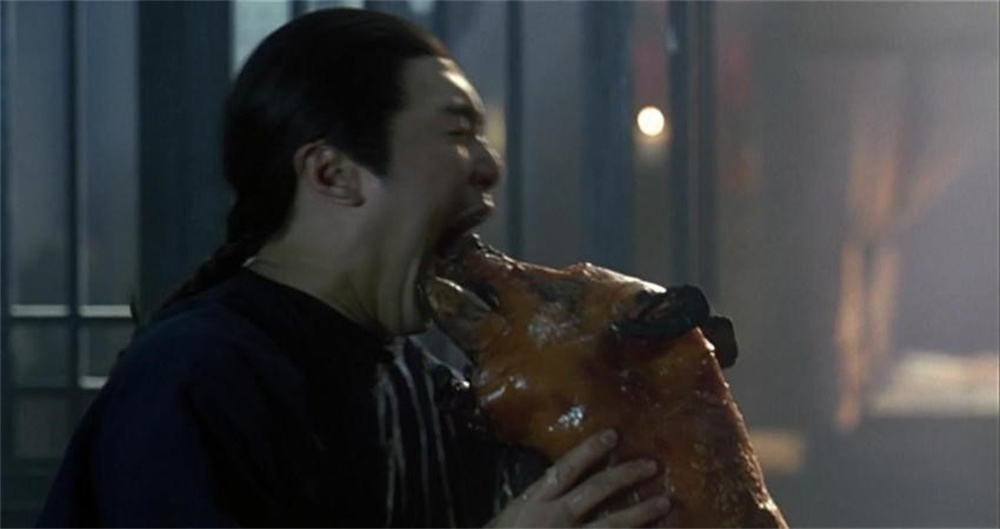
A comedian can conjure flowers for you just by giving him a stick.
Superstar actors like "Master Xing" help the film in an all-round and subtle way. In every scene where he appears, as long as he is thrown a line at random, he can find a way to interpret this line into a comedy that makes people laugh. Many details of comedy performances are designed and decided by him. As for the performance that embodies the characters, whether it is Wei Xiaobao's most typical adapting to the wind, or the face of a small person who sometimes flatters and sometimes forgets himself, Zhou Xingchi can do it at his fingertips. At that time, it was the stage when his nonsensical style changed from innovation to maturity. It can be said that he was walking towards the peak of his acting level. The film has no acting difficulties for him. It may not be as good as "The King of Destruction" or "Ouchi Secret Detective Zero Zero Hair", which needs to show the humble and humiliating state of the characters, and the requirements will be higher.
Master Xing only "played steadily" a little, which basically established the mature comedy tone of the film.
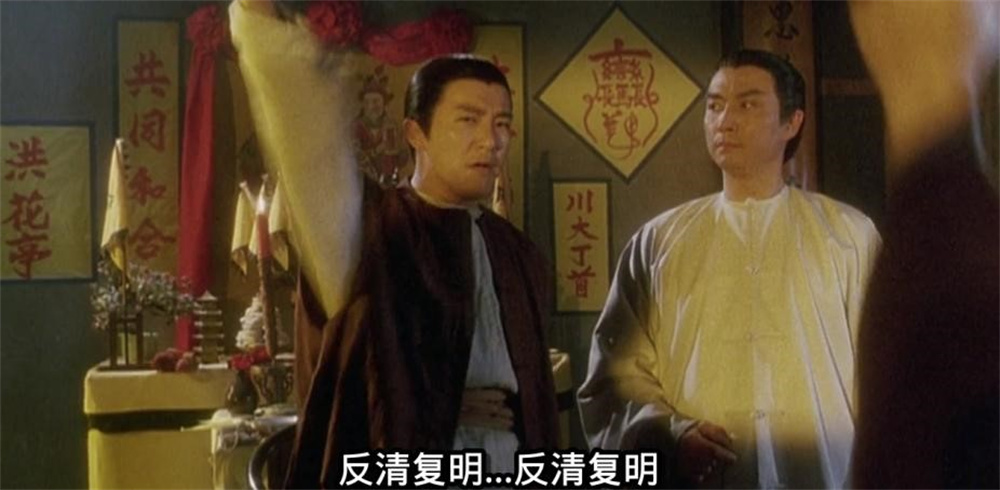
Obviously the slogan of loyalty was shouted, but the actor's attitude was written on his face, it was all comedy.
But Stephen Chow alone is not enough.
Director Wang Jing has become the spokesperson of "Big Bad Movies" in recent years. It seems that anyone can step on it, but he was a top-notch commercial film director back then. He started as a screenwriter in his early years, and was fortunate to be a director at a young age, and his works have been making money for his boss. At the same time, he played many supporting roles in comedies. The image of a fat man with a round face and glasses is also distinctive, and he can be described as an all-rounder who combines director and director. The critical acclaim of "God of Gamblers" (1989) also made him the most marketable commercial director. The cooperation between him and Zhou Xingchi was also quite smooth, including "Nine Pins of Sesame Official" (1994) and other films, which became one of Zhou Xingchi's most popular works with audiences.
Objectively speaking, director Wang Jing not only understands what a comedy performance is and can keep Stephen Chow shining, but also understands how to make the "drama" more balanced. In the films he directed seriously, even the "star master" will not occupy all the advantages of the film, but the characters, plots, and the play of many supporting roles will better make the whole film into a whole.
In this adaptation of "The Deer and Ding Tale", he also grasped the essence of the original work, made a lot of simplifications suitable for the movie, but also grasped the main line of Wei Xiaobao's fortune, and did not become a bland daily account.
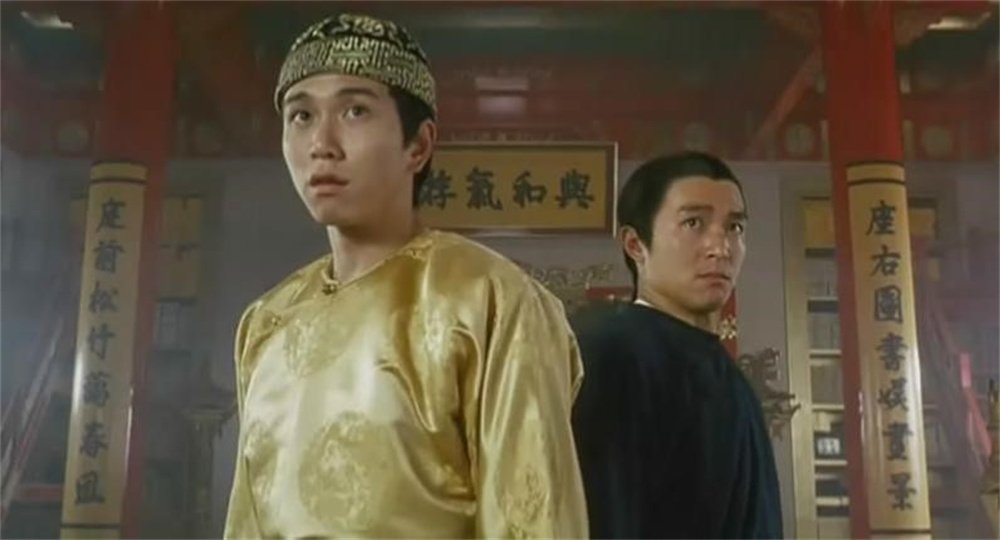
Wei Xiaobao and Kangxi have always been the most important relationship in the adaptation of TV dramas. But the movie version is just one of the clues. This is also an idea of adaptation.
The first part of "The Deer and Ding Tale" describes that Wei Xiaobao was appreciated by Chen Jinnan, the leader of the Tiandihui, entered the palace as an undercover agent, was recruited by the chief eunuch Hai Dafu, and became Kangxi's confidant by mistake. In the end, he defeated Oboi and exposed the conspiracy of the saint of the Dragon Sect to pretend to be the queen mother. There are as many as six or seven main characters and supporting roles involved in these plots, just like the clearance boss in the game, each character is the key to Wei Xiaobao's advanced career.
In terms of film capacity, there are not many scenes that each character can share. The most difficult thing is to immediately reflect the personality traits of the supporting characters, the relationship with the protagonist, and even strengthen their emotional bond with Wei Xiaobao through one or two scenes, and most importantly, it has to be very lively and funny. None of this is easy to do.
For Wang Jing, who is also a screenwriter, his understanding of characters can often start from the characteristics of the market and extract a highly comic characteristic, similar to the so-called "loyal ministers, good generals, traitors and thieves" on the stage. They are not complicated character labels, but they can make the audience care about the fate and plot of the characters.
Wu Mengda, who plays Hai Dafu, has always been Zhou Xingchi's golden partner. His role in the film is relatively simple, and he is a good minister who sometimes goes crazy. His sincere protection of the emperor and Wei Xiaobao's service to Kangxi had the same quality. Although they have been fighting and fighting, the two of them still showed a touching master-student relationship and reluctance in the last few scenes. Many comedy scenes in the whole film are derived from the performance of "Hai Dafu" after he went crazy, and he is the most trustworthy green leaf beside Zhou Xingchi.
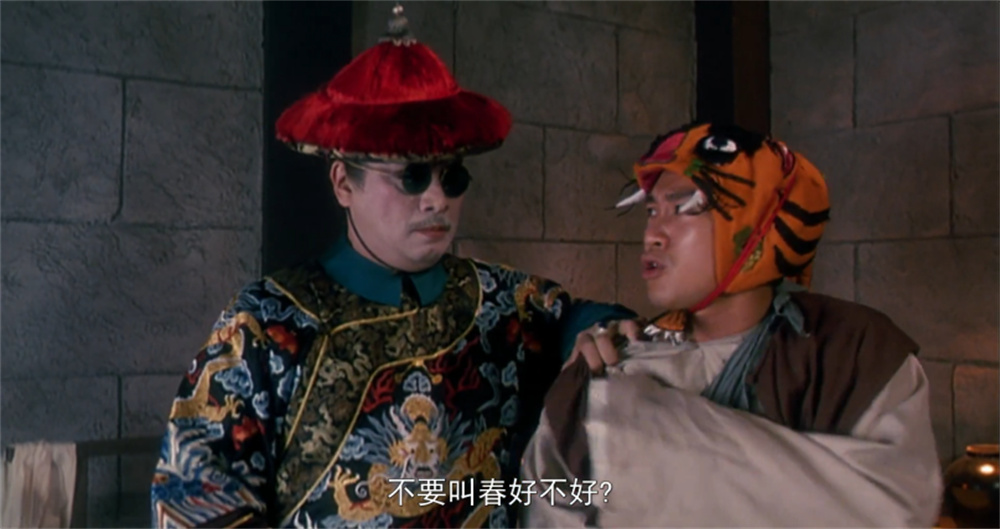
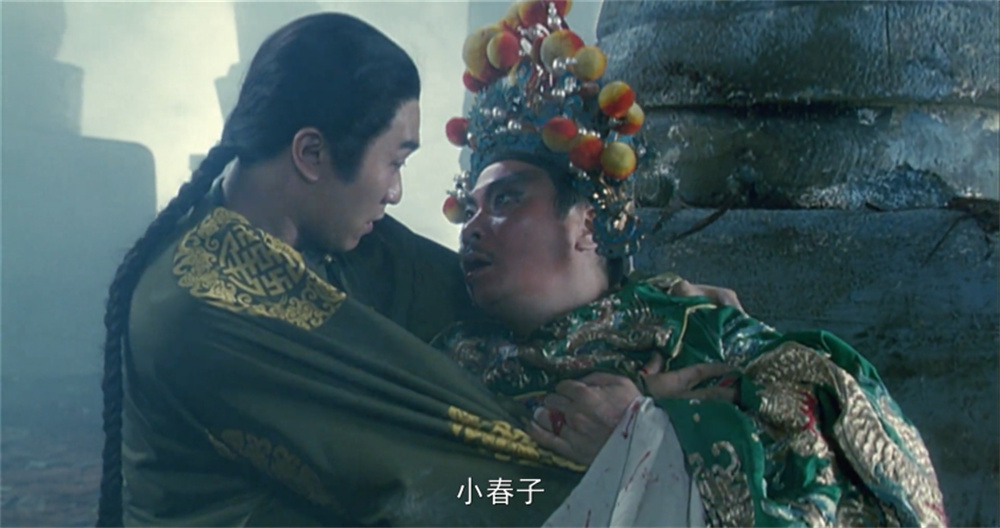
Hai Dafu and Wei Dabao, who have weird looks, were a little moved and reluctant to see them before they finally went offline. I have to say that the play was well written and the actors acted well.
What is even more surprising is the role of Chen Jinnan. Different from the so-called upright righteous men in the original book, the "anti-thief leader" in the film actually hides something deep. In order to buy Wei Xiaobao, Chen Jinnan often bargained for how much benefits he would give him, which was also a very funny market struggle. Even though there are not many episodes, his quick-witted "wisdom in dealing with things" will still leave a deep impression on people. It can be said that besides Wei Xiaobao, another type of comedy character who is good at changing. Although the actor Liu Songren has not appeared in many movies, his acting skills in long-form TV dramas have always been quite trustworthy. In this film, comedy is also regarded as a drama, but his performance is very brilliant.
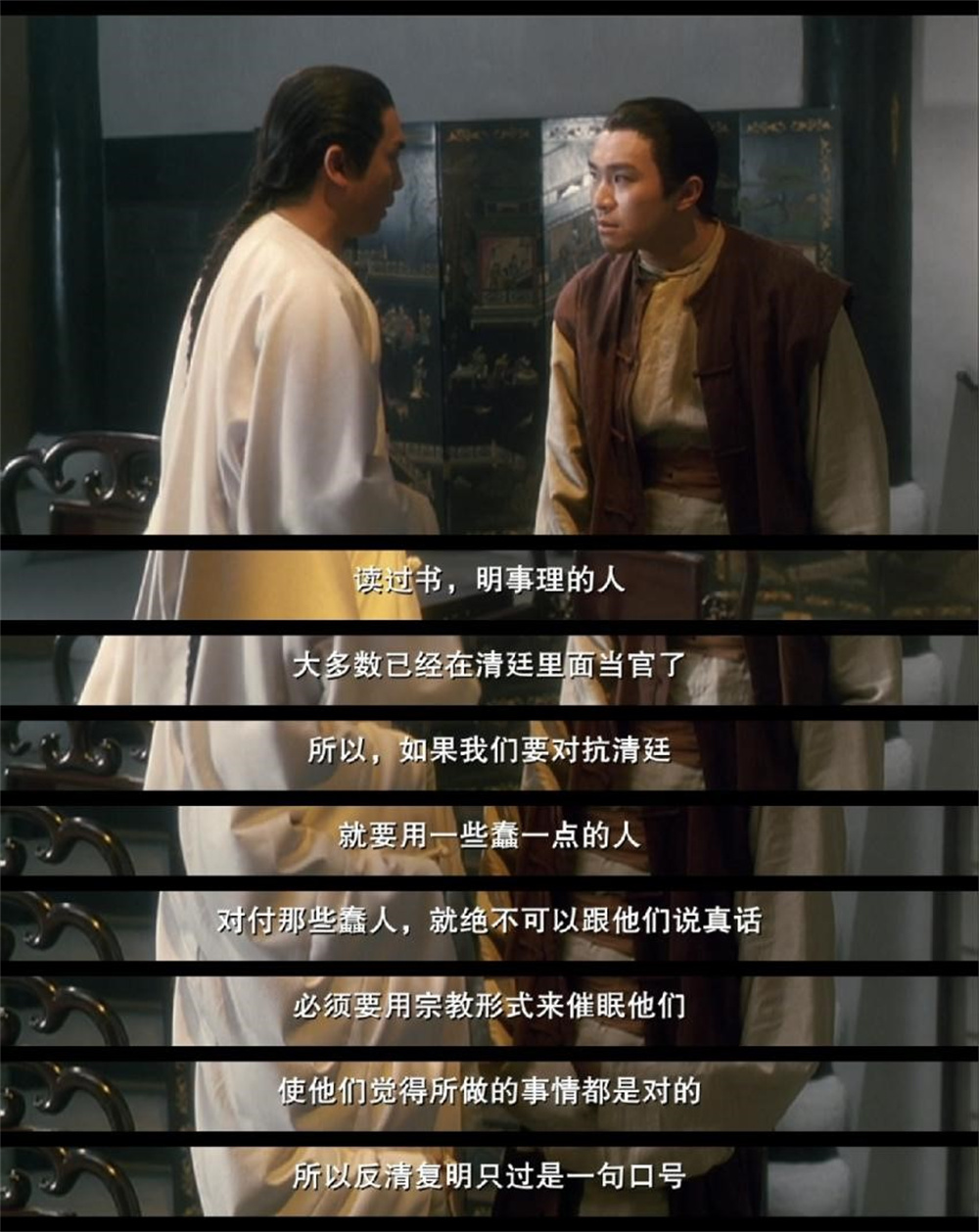
Chen Jinnan's lines full of insight into life stunned Wei Xiaobao for a moment. In fact, he was another kind of brainwashing towards Wei Xiaobao. This character is "big flicker" from this, which is very comedic.
In the second part of "The Deer and Ding Tale", because "Hai Dafu" is offline, the main comedy partner with Zhou Xingchi was replaced by Chen Baixiang. He played Duo Long, a rascal who was more shameless than Wei Xiaobao. He also contributed a lot of exaggerated jokes because of his quick flattery and face-changing and selling friends for glory. Later, Chen Baixiang also starred in similar "clowns" in "Tang Bohu Spots Autumn Fragrance" and other films, all of which have good screen effects.
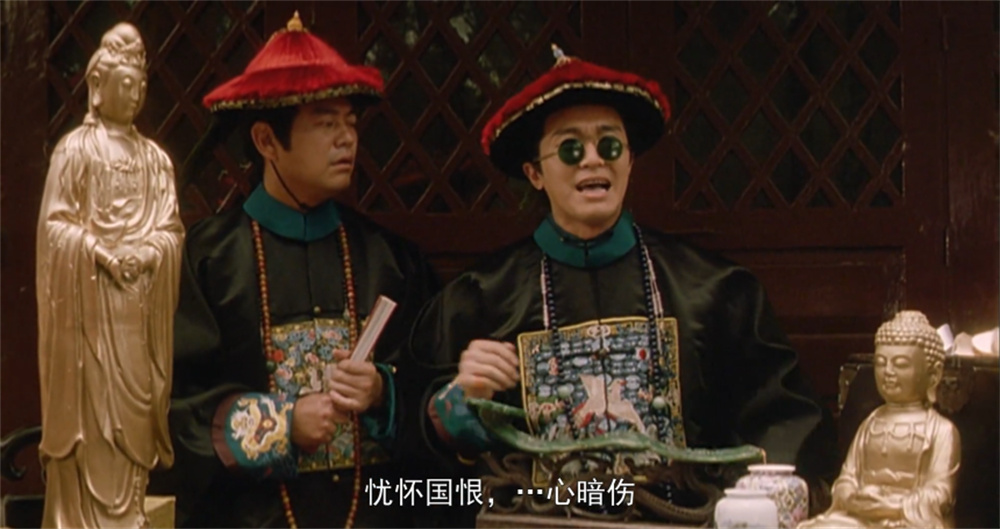
In the scene of ransacking Oboi's house, Wei Xiaobao and Duo Long sang together, vividly showing the face of the greedy and lustful little official.
It's a pity that Wei Xiaobao was promoted to the head of the Tiandi Hall, and the road to advancement has come to an end. Chen Jinnan's role in the scene began to weaken, and the mentor of the rivers and lakes was replaced by the "one-armed nun". However, the interaction between the nun and Wei Xiaobao did not produce much comedy, nor did it elevate Wei Xiaobao's ideological enlightenment of "integrity and righteousness" on the theme of the whole film, but fell into the line of some vulgar comedies. This caused the second "The Deer and Ding Tale" to lack some connotation compared to the first one, and lost the discussion of the spiritual growth of Wei Xiaobao, a small character, in Mr. Jin Yong's original work.
Although these supporting roles don't seem to have much bonus points at first glance, once the interaction with the protagonist is written simply, people will immediately notice that they are losing points. This is also the reason why the first episode is richer and more exciting than the next episode.
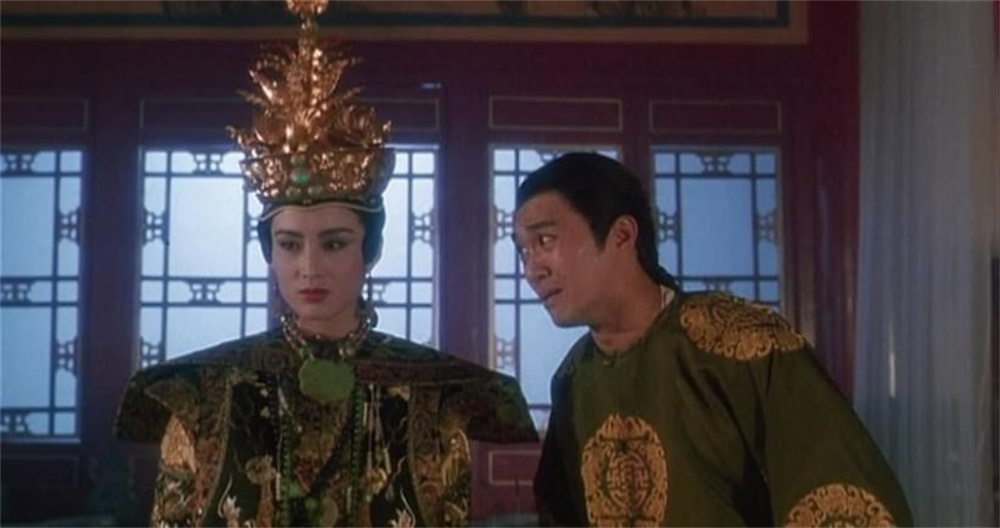
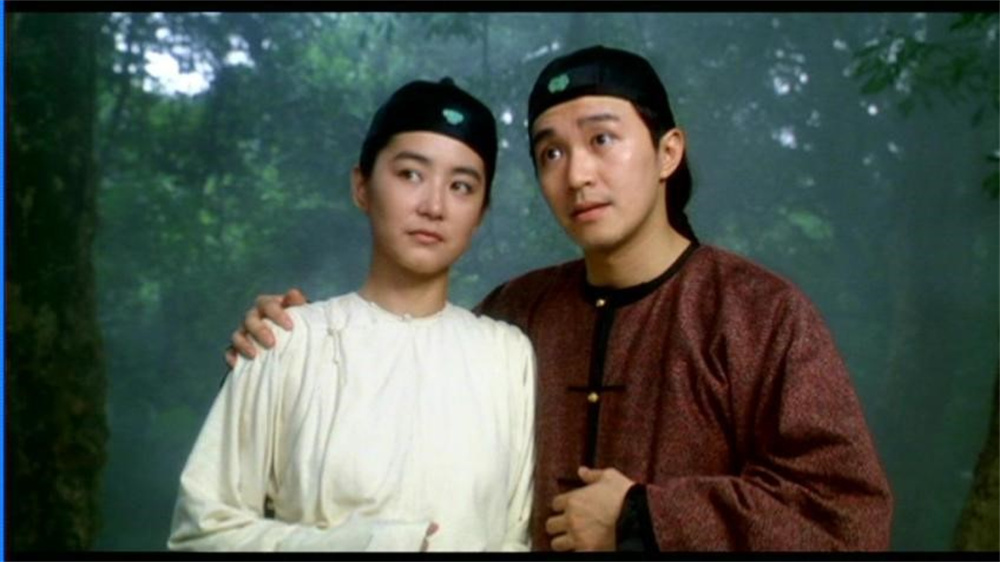
In the second episode, Lin Qingxia, who has more box office appeal, replaced Zhang Min and played the most important heroine-the saint of the Dragon Sect.
The appearance of many female characters is undoubtedly another highlight in the film.
In the film, the seven wives in the original work are reduced to five—the twins of the two maids "Shuang'er" are a comedy point. Basically, two wives were assigned to Wei Xiaobao in the first episode, and two more wives were assigned to Wei Xiaobao in the second episode. Although these female characters do not have much room to play in terms of the depth of the theme of the story, they are all standard for "cool" male characters, but they are fat and thin, each has its own beauty, personality and temperament, and each has its own cuteness. Qiu Shuzhen's violent and charming, "Shuang'er"'s old-fashioned loyalty, Lin Qingxia's elegant and handsome, Zhang Min's glamorous and aloof, and even the "wooden beauty" Li Jiaxin is cute and easy to deceive, so people can't help but feel pity.
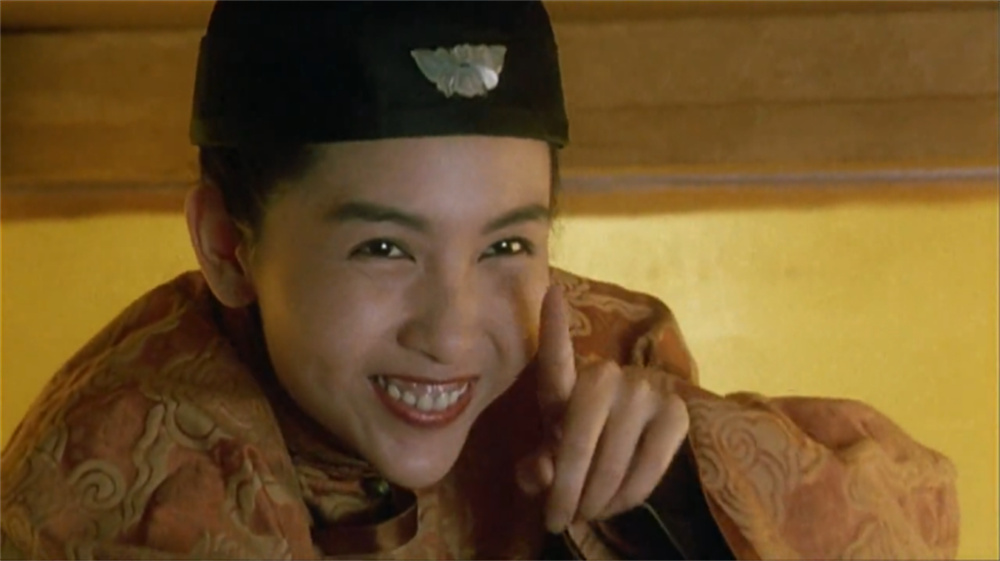
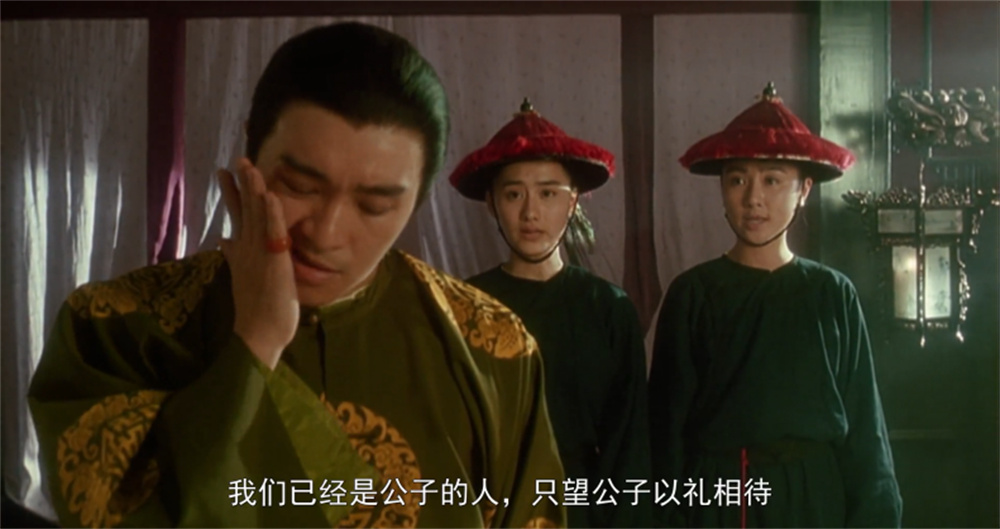
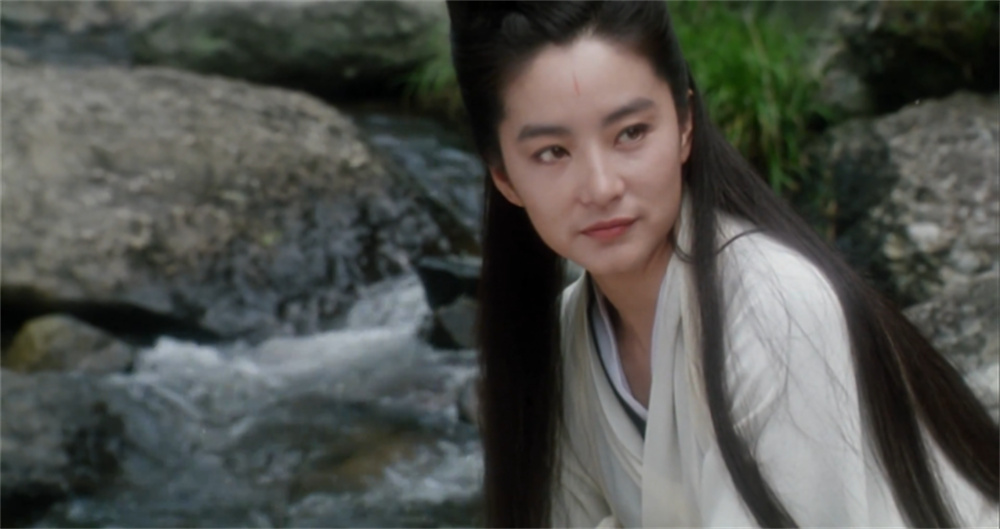
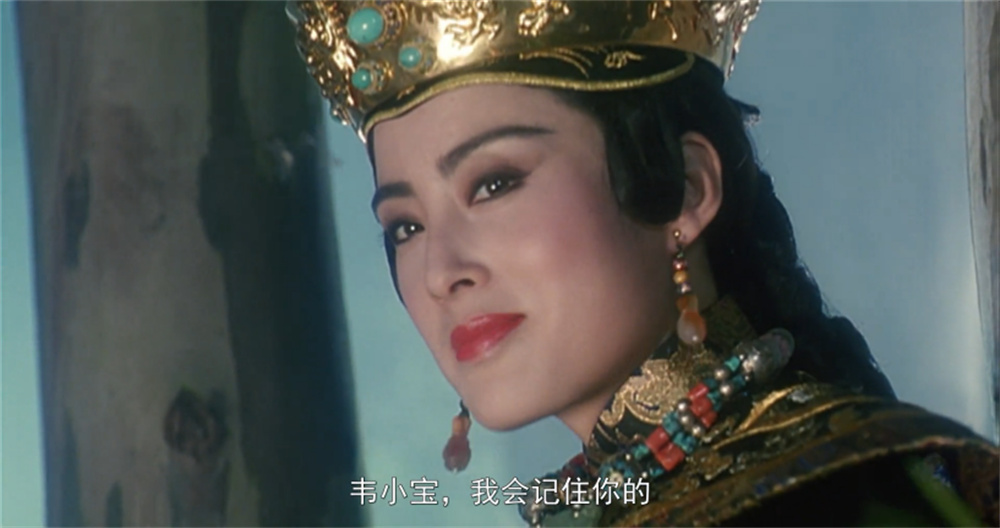
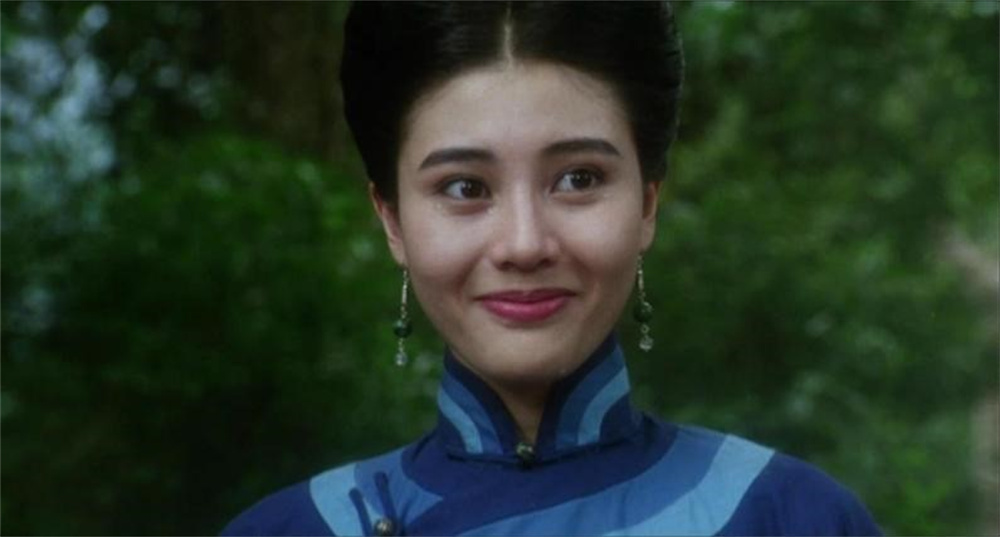
Many female characters have their own beauty, and they all left unforgettable moments.
For the discovery of "feminine beauty" on the screen, if you forget Director Wang Jing's obsession with "Internet celebrity faces" in recent years, in fact, his early aesthetics have always been in line with the preferences of male audiences. Similarly, because he is good at giving actors room to perform, the actresses he made popular in the early years were liked by male audiences as well as female audiences. They not only have natural and fresh personality characteristics, but also have a very sexy selling point. To use a popular saying, it is "pure and lustful". This matter seems simple, but it actually reflects the director's aesthetic taste, and it is an artistic judgment in creation, which is definitely not something that can be done simply by "lusty".
No matter how many rumors there are about Director Wang outside the film, at least not every director can keep the best youth of an actress on the big screen, so that the audience will still feel excited when they watch it again. Perhaps it is not enough to say "thank you, Director Wang", but in general, the director of a commercial film is also a creator, and he has to make many correct decisions to make the film look good. Here is still not showing mountains and dews, but it reflects a kind of "creative talent". Similarly, when the film has actually become unattractive in recent years, it must be admitted that this is "the decline and exhaustion of creative ability".
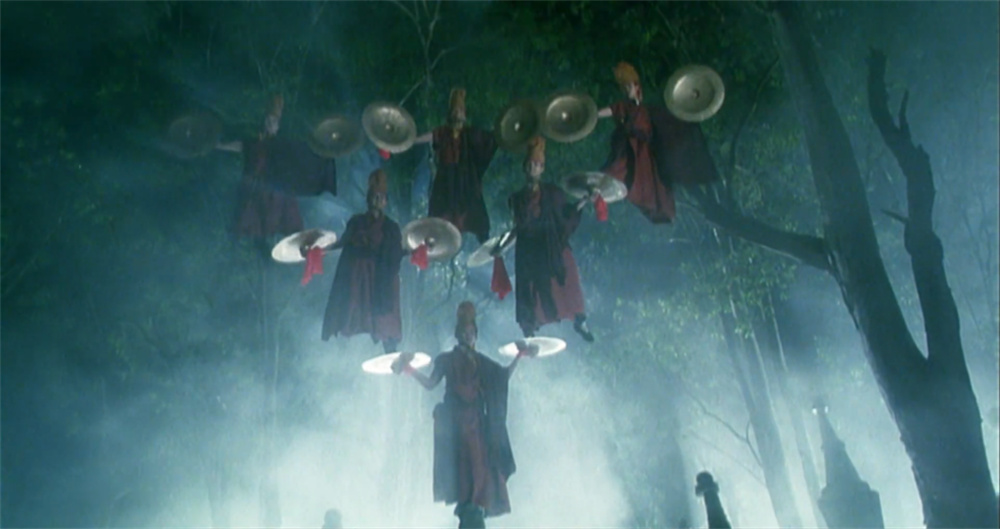
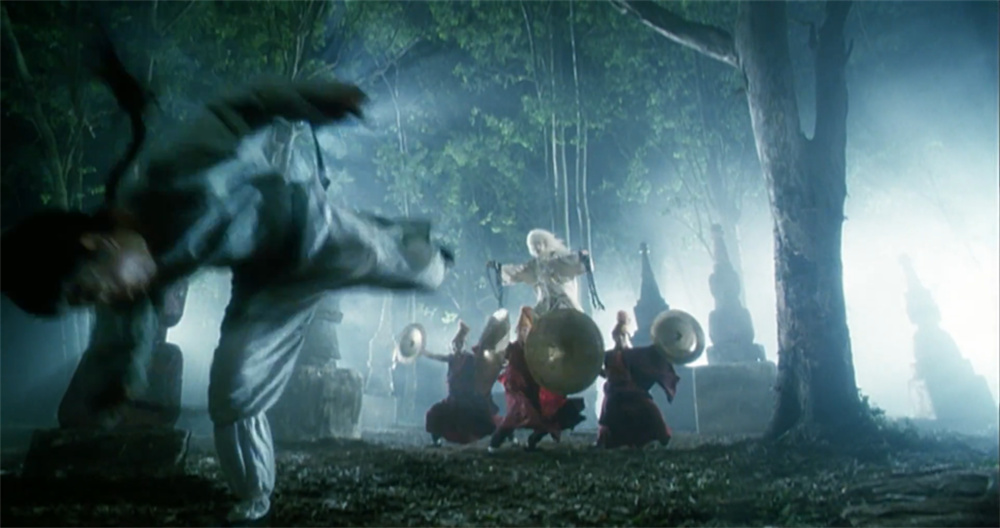
The innovative design of action scenes is also an important part of comedy action movies, although it is rarely praised alone.
In addition, the martial arts design of "The Deer and Ding Tale" can be regarded as quite satisfactory, and there are some bright colors. Whether it's the scene of fighting Oboi in the woods at the end of the first episode, or the design of manipulating the boy in red to fight at the end of the second episode, they all belong to the normal level of martial arts in the early 1990s, representing the generally good quality requirements of Hong Kong filmmakers for action dramas at that time. There are hilarious gang fights, but also some creative features.
Although it won't be singled out for praise, these action scenes are obviously a part of shaping the overall atmosphere of the film, and it is also a guarantee that the audience will feel that it is worth the ticket price.
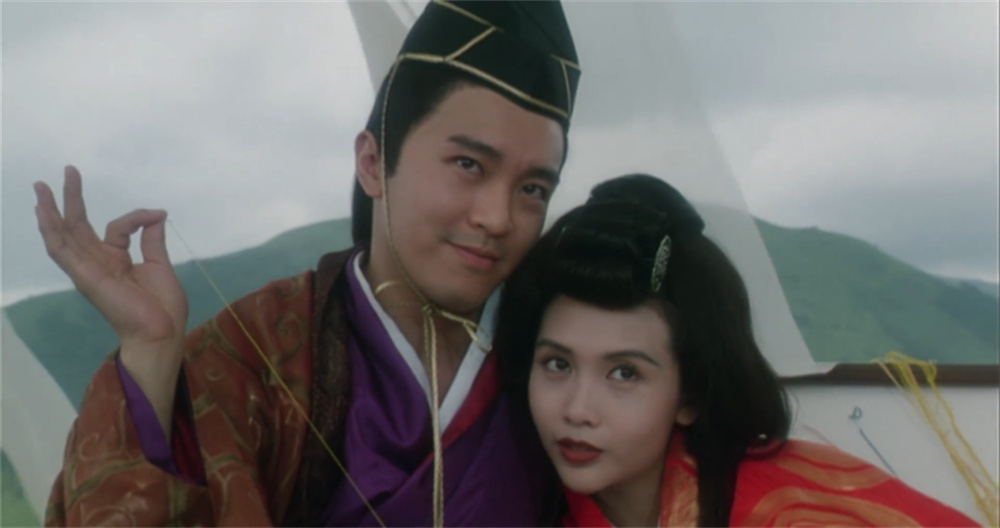
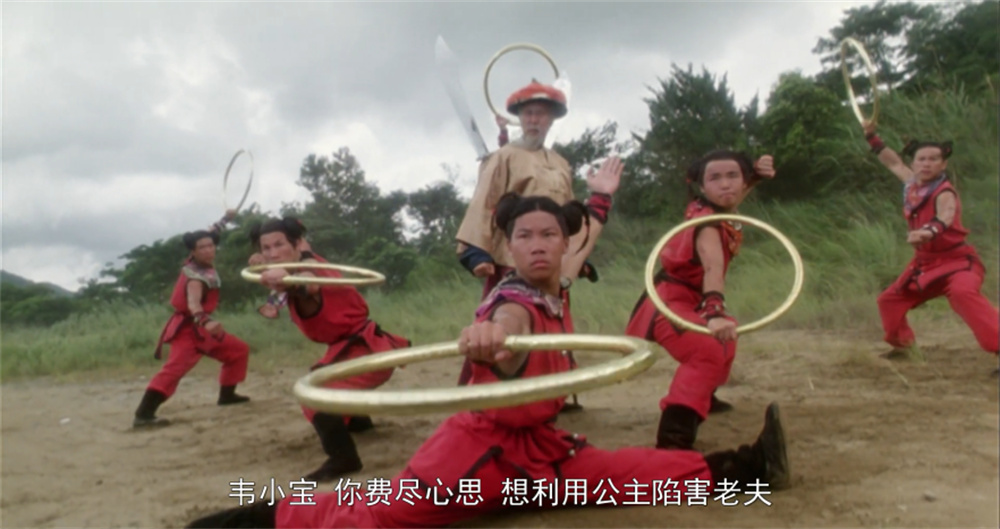
The final battle of the second episode of "The Deer and Ding Tale" parodied some of the looks of "Swordsman: The Undefeated in the East", but also used the innovative design of using needles to manipulate real people.
Looking at "The Deer and Ding Tale" again, you will feel that this is a work based on "nonsensical" comedy, and it is quite bright in terms of specific characters and plots. The lively action scenes, as well as the art scenes such as the imperial palace and tomb, are also in line with the temperament of the local blockbusters of the year, and it is a comprehensive and highly commercial film. In recent years, Jin Yong's adaptation of martial arts films has already surpassed those of the past in terms of action and scene special effects, but when it comes to the personal charm of the actors, the attractiveness of the characters and the plot, the beauty of each "scene" is far worse than that of the past.
I only hope that next year, Mr. Xu's "The Legend of the Condor Heroes" will not only be a big hit at the box office, but also make everyone feel that there are a few good things, rather than another mediocre work.
